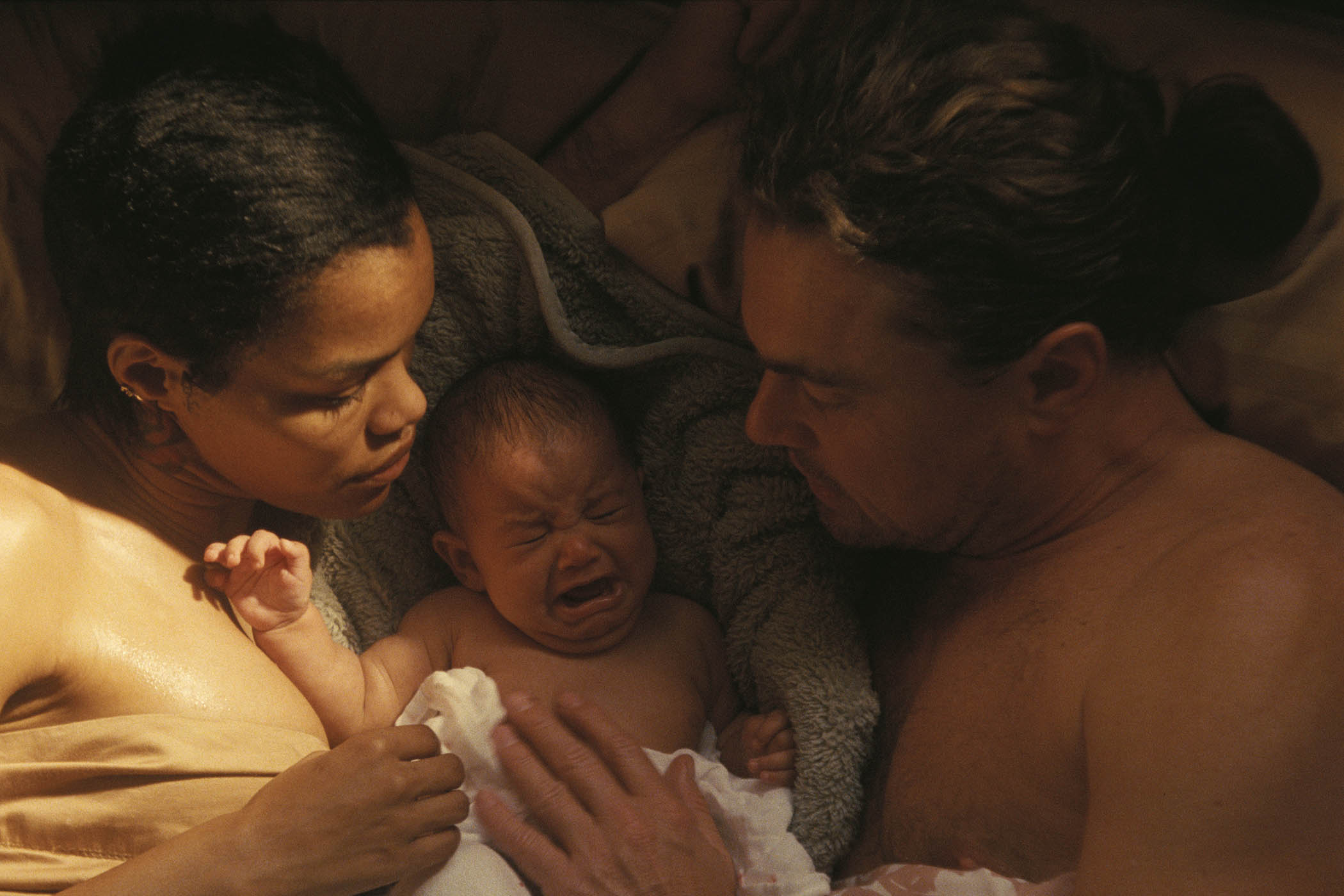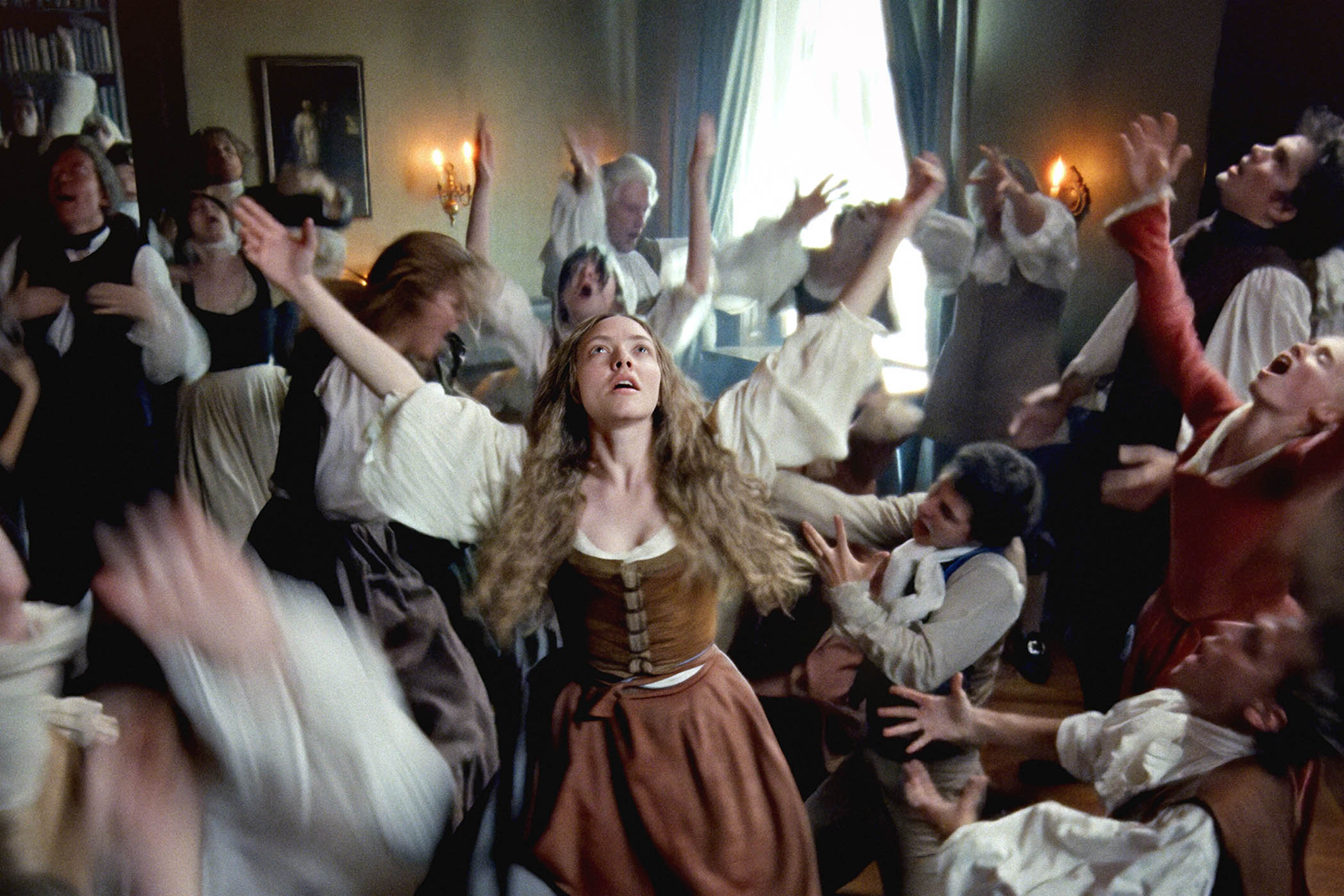Listen to Olivia Ovenden discuss how daddy issues are making a cinematic comeback on this week’s episode of We Have Notes.
Once I started noticing the dads, I couldn’t unsee them. This awards season, they are everywhere: staring silently, longingly at their wives and children, unable to properly articulate how they feel, as though their emotions are hermetically sealed off from the world. Many of these on-screen fathers instead find their words through performance, wrestling their pain into films, plays and even standup comedy.
The starting gun of the daddy issues Oscars race was fired by Paul Thomas Anderson’s One Battle After Another, in which Leonardo DiCaprio’s character, Bob, finds his struggle to communicate with his daughter Willa (Chase Infiniti) mirrored in his literal inability to get hold of her after she is taken into hiding by a revolutionary group. Bob was left to raise Willa by himself after her mother (Teyana Taylor) abandoned them both. As he stews in stoned paranoia, alternating between shouting at Willa, her friends and her teacher, or else passing out on the sofa while high, he’s not exactly in the running for father of the year. But when his past catches up with him, Bob chases after Willa, continually just missing her as he searches. Like the passwords Bob needs to provide to receive her safe place, the right words to reach his daughter cannot quite be grasped. Father and daughter seem unable to see each other properly until the smoke of gunfire clears and Bob emerges, saying: “It’s me, it’s your dad.”
Fathers lacking the right words are even more present in several of the big contenders this awards season. In Sentimental Value and Hamnet, two fathers, played by Stellan Skarsgård and Paul Mescal respectively, are 400 years apart – yet stuck in the same place. The first film is about a famous director, Gustav Borg, who clumsily attempts to repair his fractured relationship with one of his two daughters, Nora (Renate Reinsve), by writing a film script for her and offering her the lead role. Gustav uses the film as a way of showing he understands Nora, even as she reminds him that his absence throughout her childhood and adolescence means he has no idea who she really is. And yet there are parts of the role he has written for her that seem lifted from her life. At one point, Agnes (Inga Ibsdotter Lilleaas), the other daughter, swears she never mentioned Nora’s depressive period to their father – that somehow, he must have just known.
Director Joachim Trier wrote Sentimental Value after having his first child and before a second arrived, telling Vulture recently that part of the process of making the film was about “exorcising something” surrounding his fears about fatherhood. That idea of driving something out, and using art as a means to communicate how we feel, is apparent when on the set of his film, Gustav looks over at Nora as if to say: do you see now?
The same look appears in the final scene of Hamnet, a film in which another father channels his pain into performance as a way of finding language for it. Mescal’s Shakespeare has been absent from his family as he pursues his work. He pays the price when his wife Agnes (Jessie Buckley) reminds him that he was not there when his young son, Hamnet, died. But where his wife’s pain is primal and bodily, his is shown in stony silence. In the play he writes for his son, Hamlet, Shakespeare has a character lament the “unmanly grief” that Hamlet feels for his father’s death. When Shakespeare glimpses Agnes from the wings – as she watches a performance of the play and its opening conversation between a son and the ghost of his father – there is that same look of a man unburdened by finding the language for what he could not say out loud.
It is there again in Jay Kelly, as George Clooney’s character, a film star who chose work over family, takes an imaginary walk in the woods with a ghostly version of his eldest daughter and tries to make amends. It is visible on the face of Will Arnett’s character Alex in Is This Thing On?, as he takes to the stage at an open-mic night and turns his feelings about separating from his wife into a standup routine.
It appears in the anguished final scene of Marty Supreme, as Timothée Chalamet holds his child for the first time and starts to cry. After chasing his dream around the world in the relentless pursuit of greatness, he stands still. Director Josh Safdie has talked about how after the birth of his daughters “time started to move in a different way.” In an interview on The Big Picture podcast, Safdie described the feeling of meeting your child as “a cosmic moment”. He said: “The movie is about when you look at a picture of your folks before you were born. Like, what was going on there? I thought I was the centre of their universe but where was I? I wasn’t there.” That feeling – which since the moment of conception that Marty Supreme opens with, it has been hurtling toward – is a reframing of how he sees the world that needs no words.
Films about men who can’t express how they feel are nothing new, but this wave feels like an attempt to find empathy for flawed men within a culture that has lately often made them the punchline, even if sometimes for good reason. These films seem less occupied with judging these dads as good or bad, and more comfortable landing somewhere between the two. Their pain, though depicted as quieter and more inward than the outward, physical pain of motherhood in some of these films, is something to take seriously – and deserving of equally nuanced and complex portrayal.
After seeing these dads on screen, I thought about generational differences when it comes to communicating emotions. It doesn’t seem like an accident that Jay Kelly’s daughter Jessica (Riley Keough) finds the strength to confront her father through the kind of therapy that has become more available and socially acceptable to younger generations. Likewise, in One Battle After Another, Willa has all the emotional maturity that both her hot-headed parents lacked. Even young Hamnet seems to embody the spirit of someone beyond his years – as does 12-year-old actor Jacobi Jupe, who weepily promised during an interview to “live on” for the sake of his character. The uncanny aping of adult behaviour makes for a great one-liner in Is This Thing On?, when Alex’s son, no older than 10, reminds him from the backseat of the car: “You have to have goals, dad.” These films seem to remind us that it is our children who teach us as much as the other way round.
Newsletters
Choose the newsletters you want to receive
View more
For information about how The Observer protects your data, read our Privacy Policy
Threaded through these stories are questions about the cost of male genius. It is notable that these explorations come from directors who, with the exception of Hamnet’s Chloé Zhao, are all male artists who have children. At one point in Sentimental Value, Gustav justifies his absence from his daughters’ lives by telling them: “You’re not going to write Ulysses while driving to soccer practice”. I found myself wondering what the partners and children of some of these men might feel after seeing a dramatised mea culpa for the times that work came first.
These are stirring, sympathetic portrayals that made me think about how, historically, men have been discouraged from feeling at all. Perhaps this is why, whether in breakthrough conversations or staged performance, their discovery of a language is so moving. Towards the end of Is This Thing On?, Alex is chewed up about his family and bombs at an open-mic night, gibbering about the mess he’s made of his life. Nobody in the audience has a clue what he means; then it is revealed his own father had been in the crowd all along. He understood exactly what he was trying to say.
Photograph by Warner Bros Pictures



